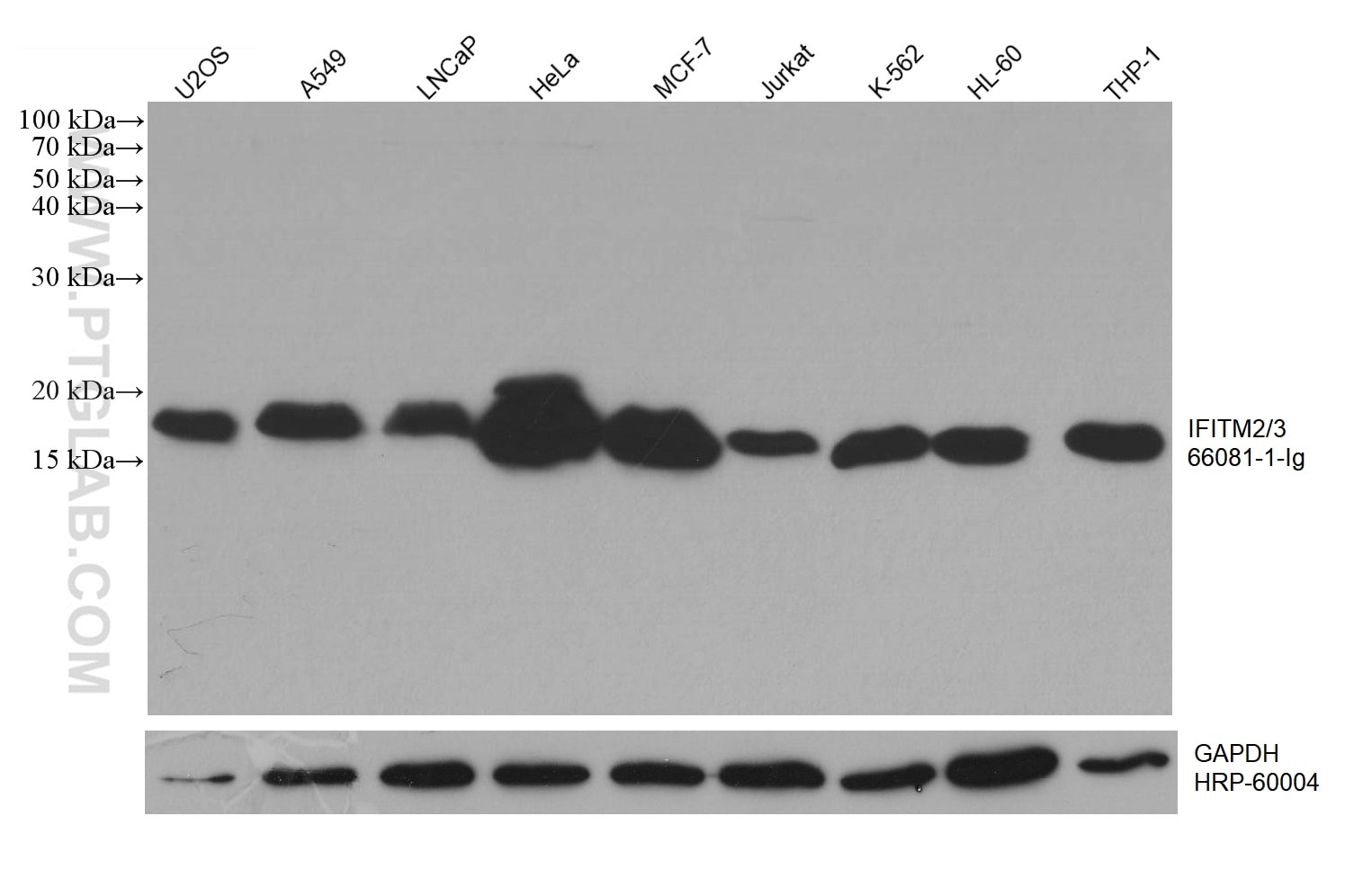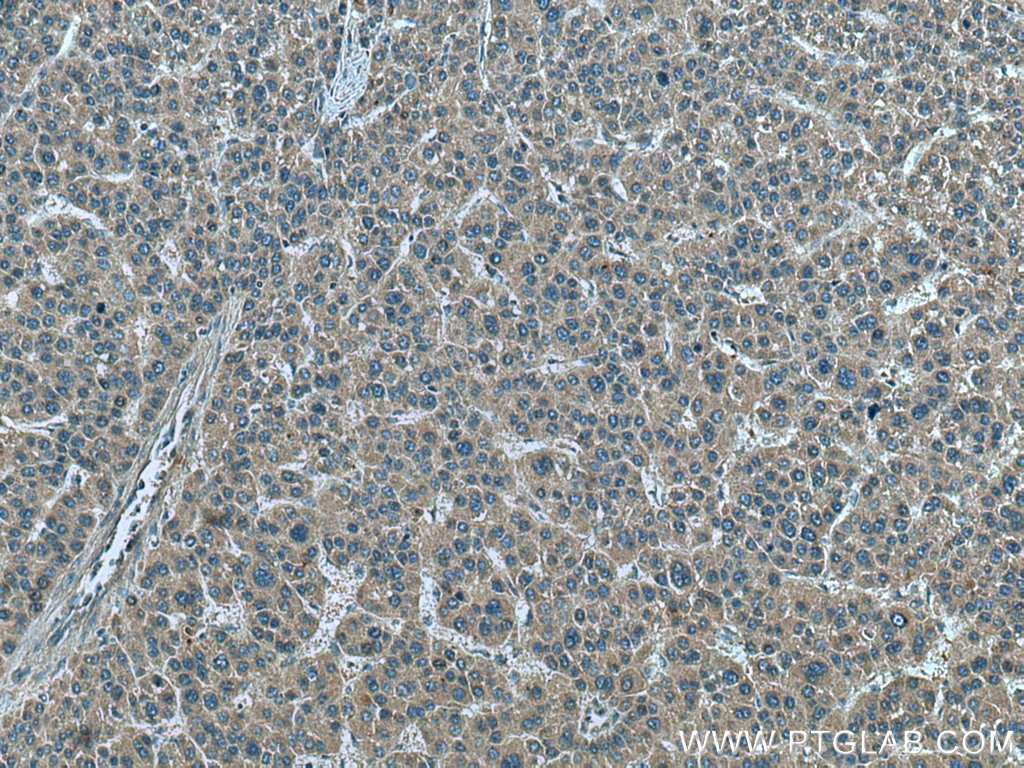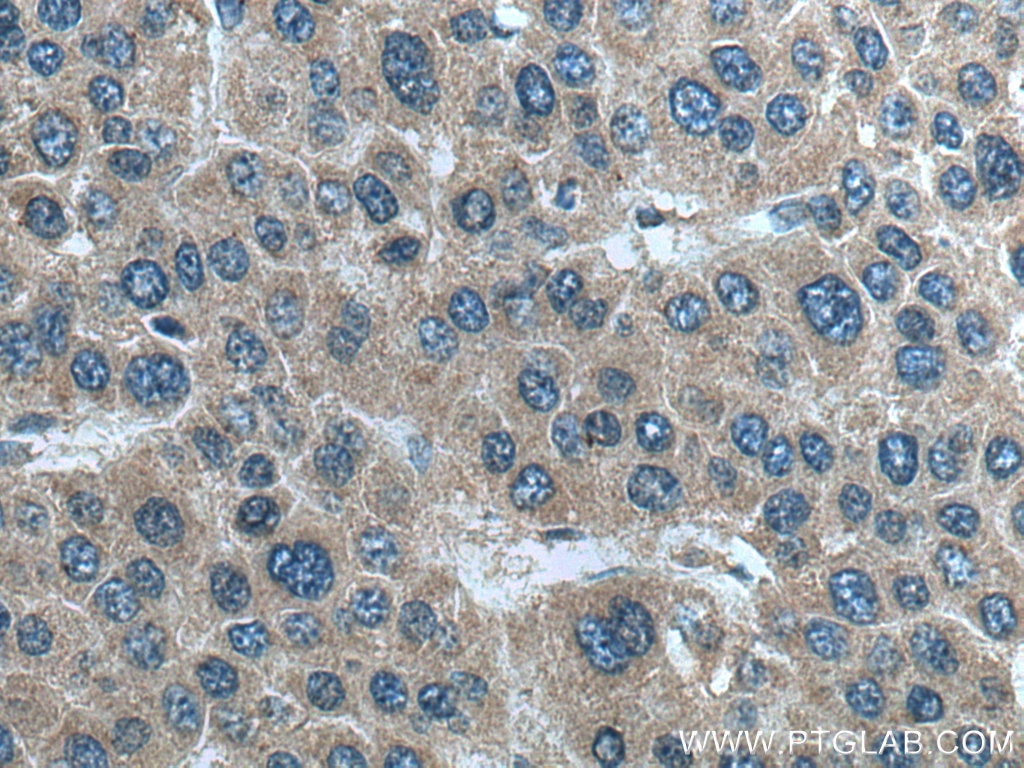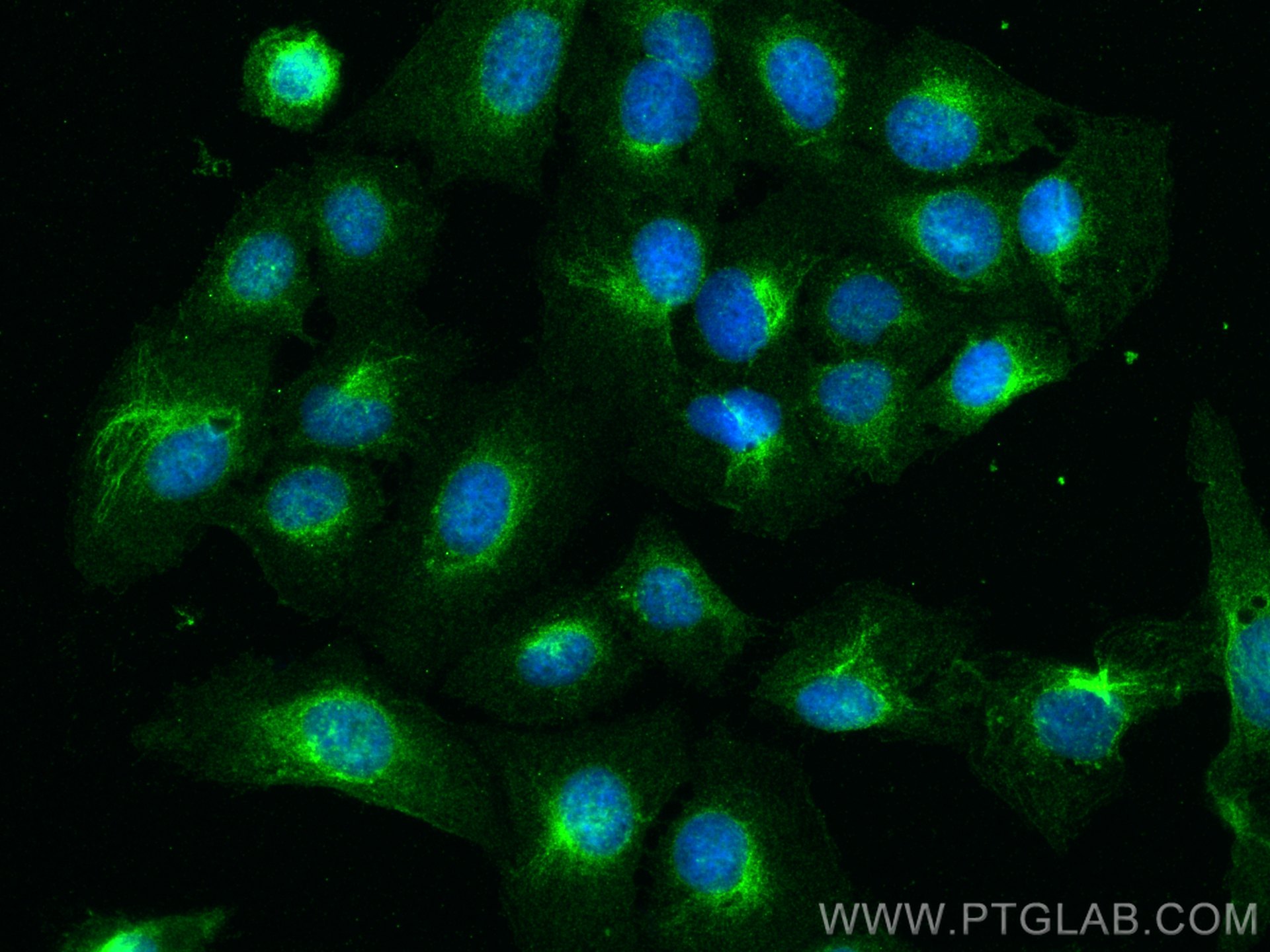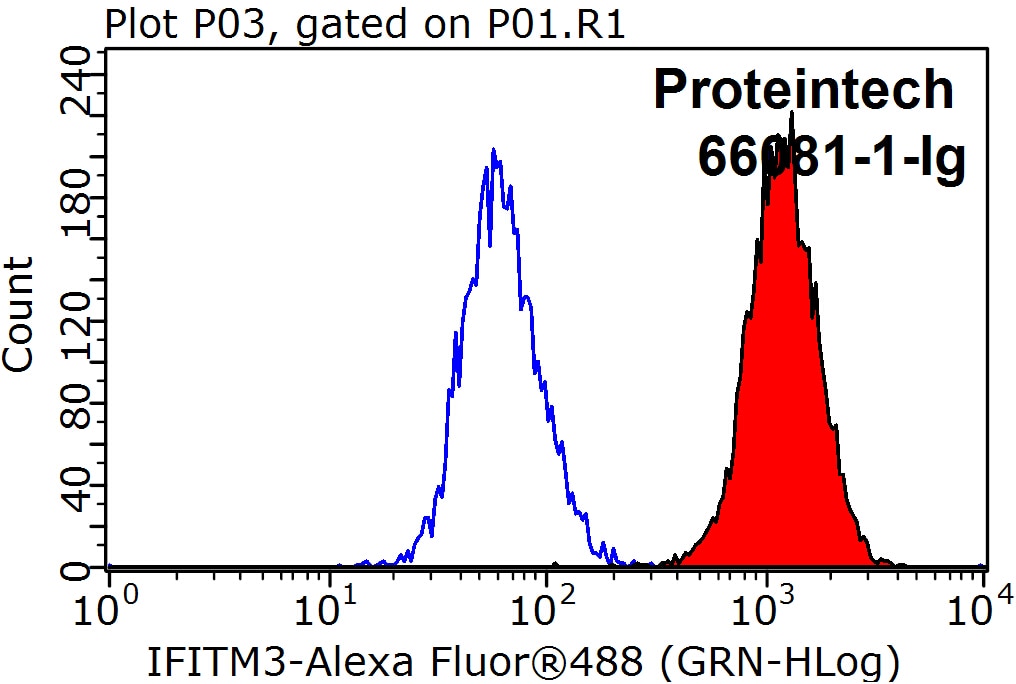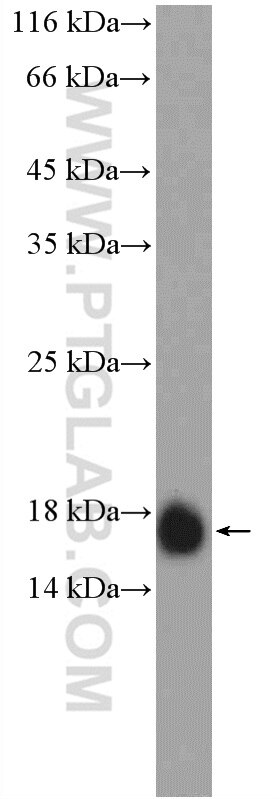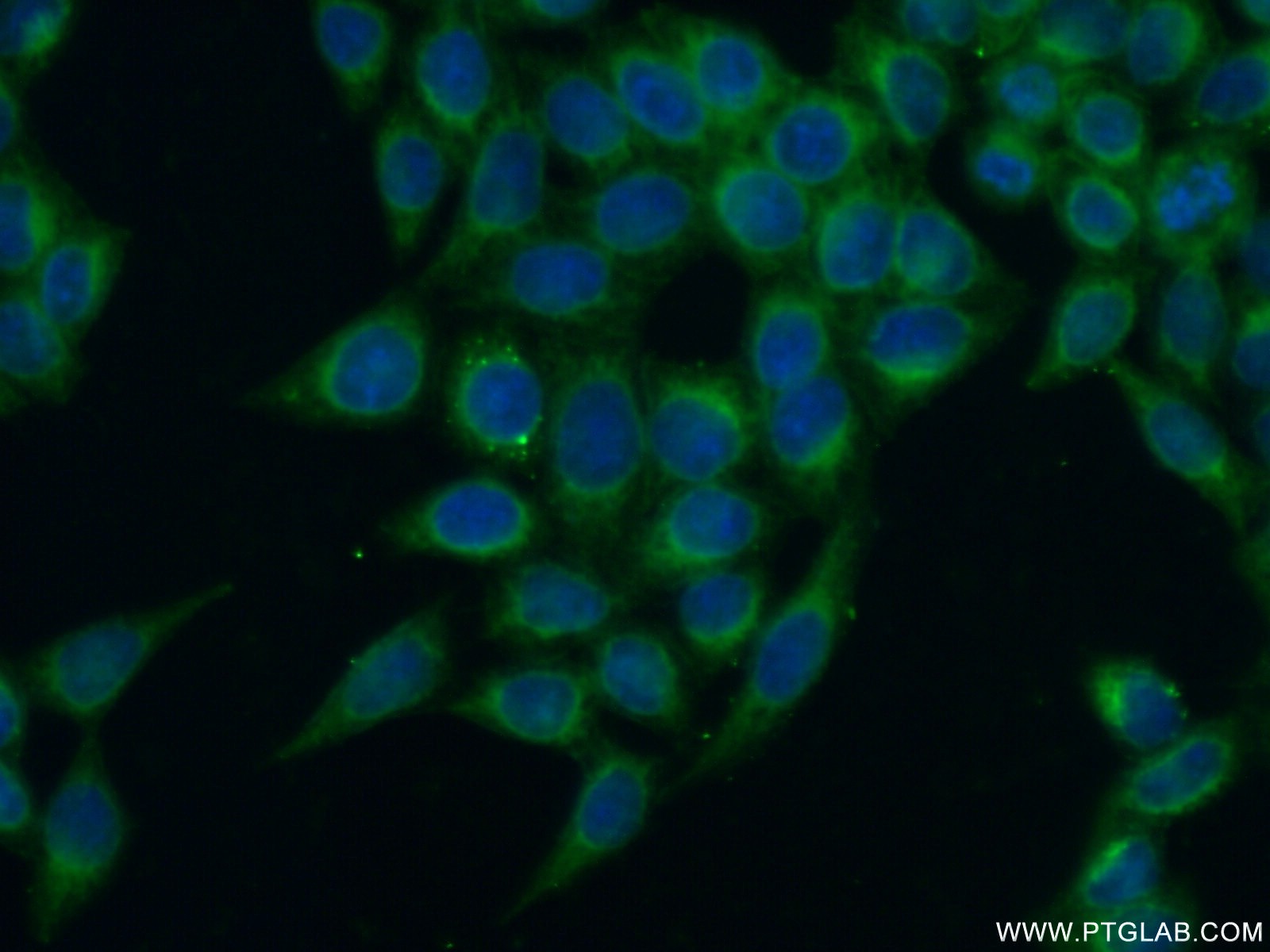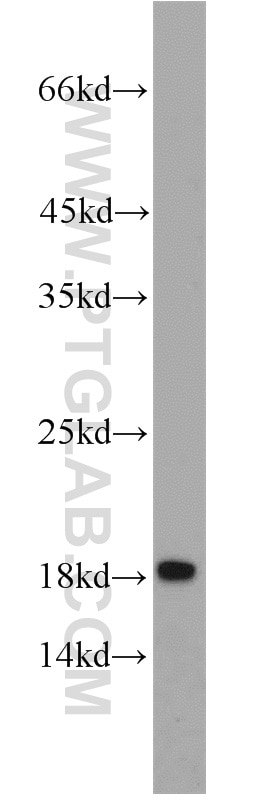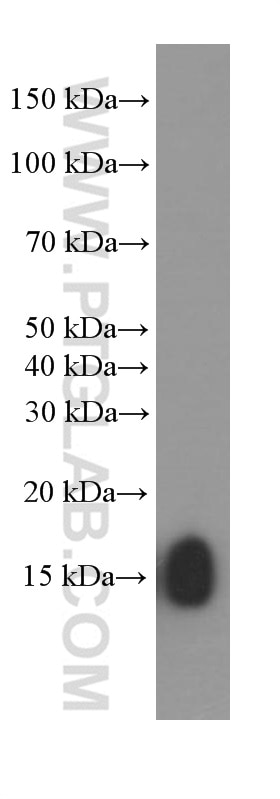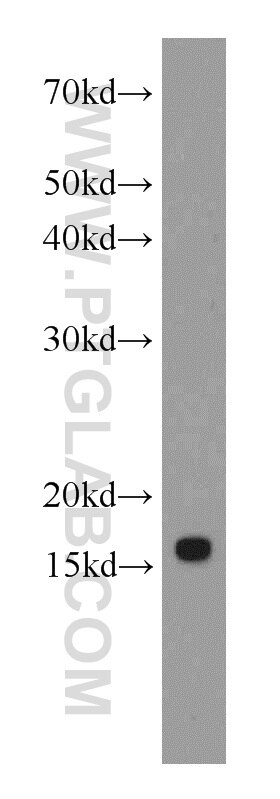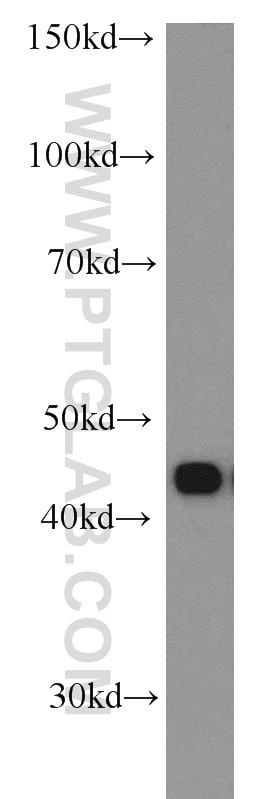- Featured Product
- KD/KO Validated
IFITM2/3 Monoklonaler Antikörper
IFITM2/3 Monoklonal Antikörper für FC, IF, IHC, WB, ELISA
Wirt / Isotyp
Maus / IgG1
Getestete Reaktivität
human
Anwendung
WB, IP, IHC, IF, FC, ELISA
Konjugation
Unkonjugiert
CloneNo.
2E8D12
Kat-Nr. : 66081-1-Ig
Synonyme
Galerie der Validierungsdaten
Geprüfte Anwendungen
| Erfolgreiche Detektion in WB | U2OS-Zellen, A549-Zellen, HeLa-Zellen, HL-60-Zellen, Jurkat-Zellen, K-562-Zellen, LNCaP-Zellen, MCF-7-Zellen, THP-1-Zellen |
| Erfolgreiche Detektion in IHC | humanes Leberkarzinomgewebe Hinweis: Antigendemaskierung mit TE-Puffer pH 9,0 empfohlen. (*) Wahlweise kann die Antigendemaskierung auch mit Citratpuffer pH 6,0 erfolgen. |
| Erfolgreiche Detektion in IF | U2OS-Zellen |
| Erfolgreiche Detektion in FC | HeLa-Zellen |
Empfohlene Verdünnung
| Anwendung | Verdünnung |
|---|---|
| Western Blot (WB) | WB : 1:5000-1:50000 |
| Immunhistochemie (IHC) | IHC : 1:500-1:2000 |
| Immunfluoreszenz (IF) | IF : 1:50-1:500 |
| Durchflusszytometrie (FC) | FC : 0.20 ug per 10^6 cells in a 100 µl suspension |
| It is recommended that this reagent should be titrated in each testing system to obtain optimal results. | |
| Sample-dependent, check data in validation data gallery | |
Veröffentlichte Anwendungen
| KD/KO | See 2 publications below |
| WB | See 9 publications below |
| IHC | See 1 publications below |
| IF | See 7 publications below |
| IP | See 1 publications below |
| FC | See 2 publications below |
Produktinformation
66081-1-Ig bindet in WB, IP, IHC, IF, FC, ELISA IFITM2/3 und zeigt Reaktivität mit human
| Getestete Reaktivität | human |
| In Publikationen genannte Reaktivität | human |
| Wirt / Isotyp | Maus / IgG1 |
| Klonalität | Monoklonal |
| Typ | Antikörper |
| Immunogen | IFITM2/3 fusion protein Ag17863 |
| Vollständiger Name | interferon induced transmembrane protein 3 (1-8U) |
| Beobachtetes Molekulargewicht | 15-20 kDa |
| GenBank-Zugangsnummer | BC070243 |
| Gene symbol | IFITM3 |
| Gene ID (NCBI) | 10410 |
| Konjugation | Unkonjugiert |
| Form | Liquid |
| Reinigungsmethode | Protein-A-Reinigung |
| Lagerungspuffer | PBS mit 0.02% Natriumazid und 50% Glycerin pH 7.3. |
| Lagerungsbedingungen | Bei -20°C lagern. Nach dem Versand ein Jahr lang stabil Aliquotieren ist bei -20oC Lagerung nicht notwendig. 20ul Größen enthalten 0,1% BSA. |
Hintergrundinformationen
IFITM3, also named as interferon-inducible protein 1-8U, belongs to the CD225 family. It is IFN-induced antiviral protein that mediates cellular innate immunity to at least three major human pathogens, namely influenza A H1N1 virus, West Nile virus (WNV), and dengue virus, by inhibiting the early steps of replication. IFITM3 is identified as interferon-induced cellular proteins that restrict infections by retroviruses and filoviruses and of influenza virus and flaviviruses, respectively. IFITM3, the most potent antiviral IFITM, was found to inhibit an uncharacterized early infectious event after VSV endocytosis, but before primary transcription of its viral genome. IFITM proteins are viral restriction factors that can inhibit infection mediated by the influenza A virus (IAV) hemagglutinin (HA) protein. They differentially restrict the entry of a broad range of enveloped viruses, and modulate cellular tropism independently of viral receptor expression. This antibody recognizes both IFITM2 and IFITM3.
Protokolle
| Produktspezifische Protokolle | |
|---|---|
| WB protocol for IFITM2/3 antibody 66081-1-Ig | Protokoll herunterladen |
| IHC protocol for IFITM2/3 antibody 66081-1-Ig | Protokoll herunterladen |
| IF protocol for IFITM2/3 antibody 66081-1-Ig | Protokoll herunterladen |
| Standard-Protokolle | |
|---|---|
| Klicken Sie hier, um unsere Standardprotokolle anzuzeigen |
Publikationen
| Species | Application | Title |
|---|---|---|
Science IFITM proteins inhibit placental syncytiotrophoblast formation and promote fetal demise. | ||
Proc Natl Acad Sci U S A mTOR inhibitors lower an intrinsic barrier to virus infection mediated by IFITM3. | ||
EMBO Rep Natural mutations in IFITM3 modulate post-translational regulation and toggle antiviral specificity. | ||
MBio Late Endosomal/Lysosomal Cholesterol Accumulation Is a Host Cell-Protective Mechanism Inhibiting Endosomal Escape of Influenza A Virus. | ||
Front Immunol Influenza A Virus Facilitates Its Infectivity by Activating p53 to Inhibit the Expression of Interferon-Induced Transmembrane Proteins.
|
Rezensionen
The reviews below have been submitted by verified Proteintech customers who received an incentive forproviding their feedback.
FH Claudia (Verified Customer) (06-20-2022) | The antibody worked very well for the analysis of IFITM2/3 expression in permanent cell lines.
|
